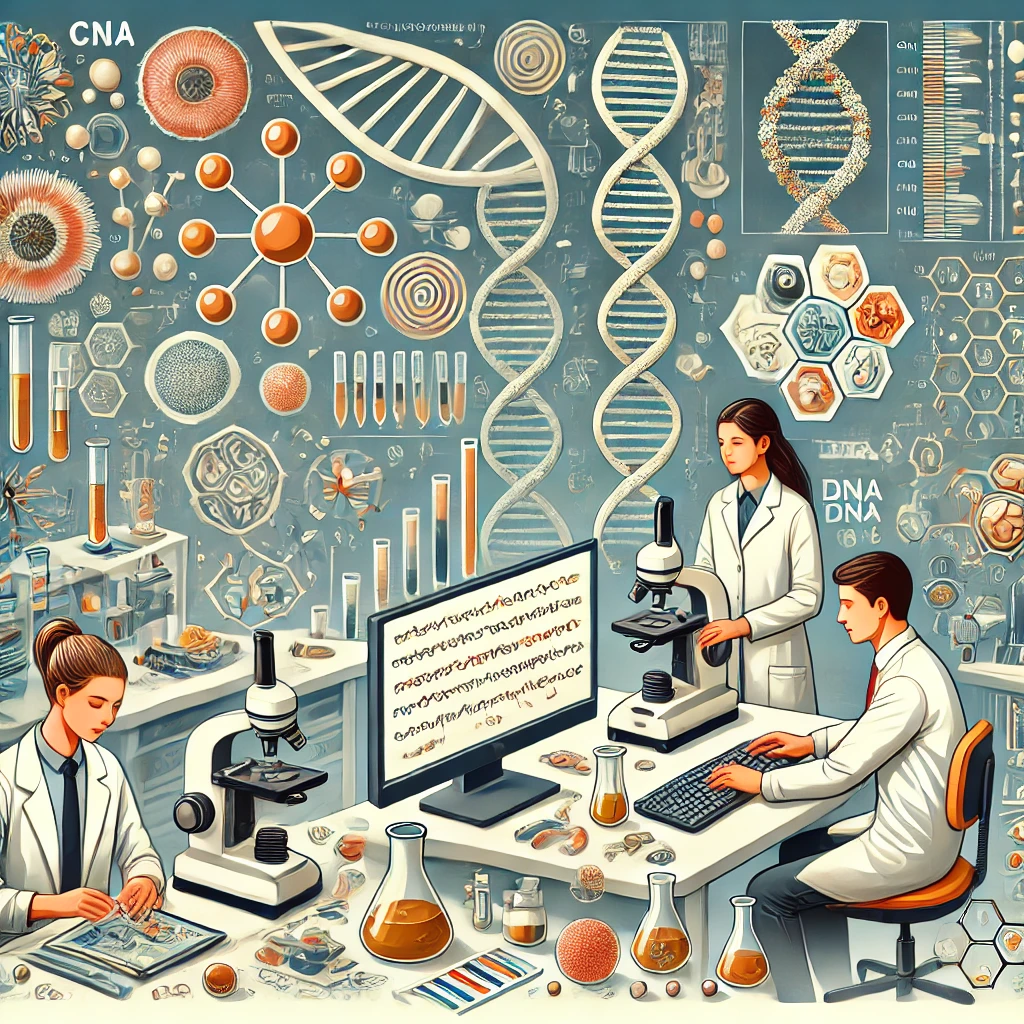Biological science is a vast and dynamic field that explores life in all its forms, from microscopic cells to complex ecosystems. Research in biological science helps us understand fundamental life processes, leading to advancements in medicine, agriculture, and environmental conservation. Whether you are studying genetics, microbiology, ecology, or biochemistry, you may find certain concepts challenging. This detailed guide provides General Biological Science and Research homework help, offering expert study tips, valuable resources, and outbound links to enhance your learning experience.

What is Biological Science?
Biological science, also known as life science, is the study of living organisms, their interactions, and their environments. It encompasses various sub-disciplines, including:
- Microbiology – The study of microscopic organisms like bacteria, viruses, and fungi.
- Genetics – Understanding heredity, DNA, and gene expression.
- Biochemistry – The study of chemical processes within living organisms.
- Ecology – Examining ecosystems and the relationships between organisms.
- Molecular Biology – Investigating biological molecules such as proteins and nucleic acids.
Importance of Biological Science Research
Scientific research in biological science plays a crucial role in many areas, including:
- Medical Breakthroughs – Research helps in understanding diseases, leading to vaccine and drug development.
- Agricultural Improvements – Genetic engineering and sustainable farming practices increase crop yields.
- Environmental Conservation – Studying ecosystems aids in wildlife conservation and climate change mitigation.
- Biotechnology Applications – Genetic modification and stem cell research have revolutionized medical treatments.
Key Topics in General Biological Science and Research Homework
1. Cell Biology and Microscopy
Understanding the structure and function of cells is fundamental to biology. Key topics include:
- The difference between prokaryotic and eukaryotic cells
- Cell organelles and their functions
- Techniques like fluorescence microscopy and electron microscopy
- Learn more at the American Society for Cell Biology
2. Genetics and Evolution
Genetics is the study of inheritance and gene function. Important concepts include:
- Mendelian genetics and Punnett squares
- DNA replication, transcription, and translation
- Natural selection and evolutionary biology
- Explore genetic research at the National Human Genome Research Institute
3. Microbiology and Immunology
Microbiology studies bacteria, viruses, and fungi, while immunology focuses on the immune system. Key topics include:
- Structure and function of microorganisms
- The role of microbes in health and disease
- Vaccine development and immune responses
- Discover microbial research at the Microbiology Society
4. Ecology and Environmental Biology
Ecology examines interactions between organisms and their environments. Important areas of study include:
- Ecosystem dynamics and food chains
- Biodiversity and conservation efforts
- Climate change and its effects on living organisms
- Check out ecological research at the Ecological Society of America
5. Biochemistry and Molecular Biology
Biochemistry focuses on the chemical processes in living organisms. Key concepts include:
- Enzyme function and metabolic pathways
- Protein structure and function
- DNA and RNA interactions
- Learn biochemistry basics at the Biochemical Society
Tips for Excelling in Biological Science Homework
- Use Visual Aids – Diagrams, animations, and models help simplify complex biological processes.
- Practice Problem-Solving – Apply concepts to real-world scenarios to reinforce learning.
- Engage in Hands-On Learning – Conduct experiments or use virtual labs.
- Refer to Reliable Sources – Use reputable scientific websites and journals.
- Join Online Study Groups – Connect with peers and experts on forums like ResearchGate.
Challenges in Biological Science Homework and How to Overcome Them
1. Memorizing Scientific Terminology
- Challenge: Biological science includes a vast vocabulary of technical terms.
- Solution: Use flashcards and spaced repetition techniques.
2. Understanding Experimental Methods
- Challenge: Interpreting research findings can be complex.
- Solution: Study real-world experiments and practice data analysis.
3. Grasping Abstract Concepts
- Challenge: Topics like genetic coding and protein synthesis can be difficult to visualize.
- Solution: Watch educational videos and use molecular modeling tools.
Career Opportunities in Biological Science and Research
A background in biological science can lead to various career paths, such as:
- Biomedical Scientist – Conducting medical research on diseases and treatments.
- Geneticist – Studying genes and genetic disorders.
- Environmental Scientist – Working on conservation and sustainability projects.
- Microbiologist – Researching microorganisms and their applications.
- Biotechnologist – Developing new medical and agricultural technologies.
Conclusion
Biological science is a diverse and essential field that contributes to advancements in medicine, agriculture, and environmental conservation. By using the right study strategies, accessing reliable resources, and engaging in hands-on learning, students can excel in their General Biological Science and Research homework and prepare for careers in science and technology.


